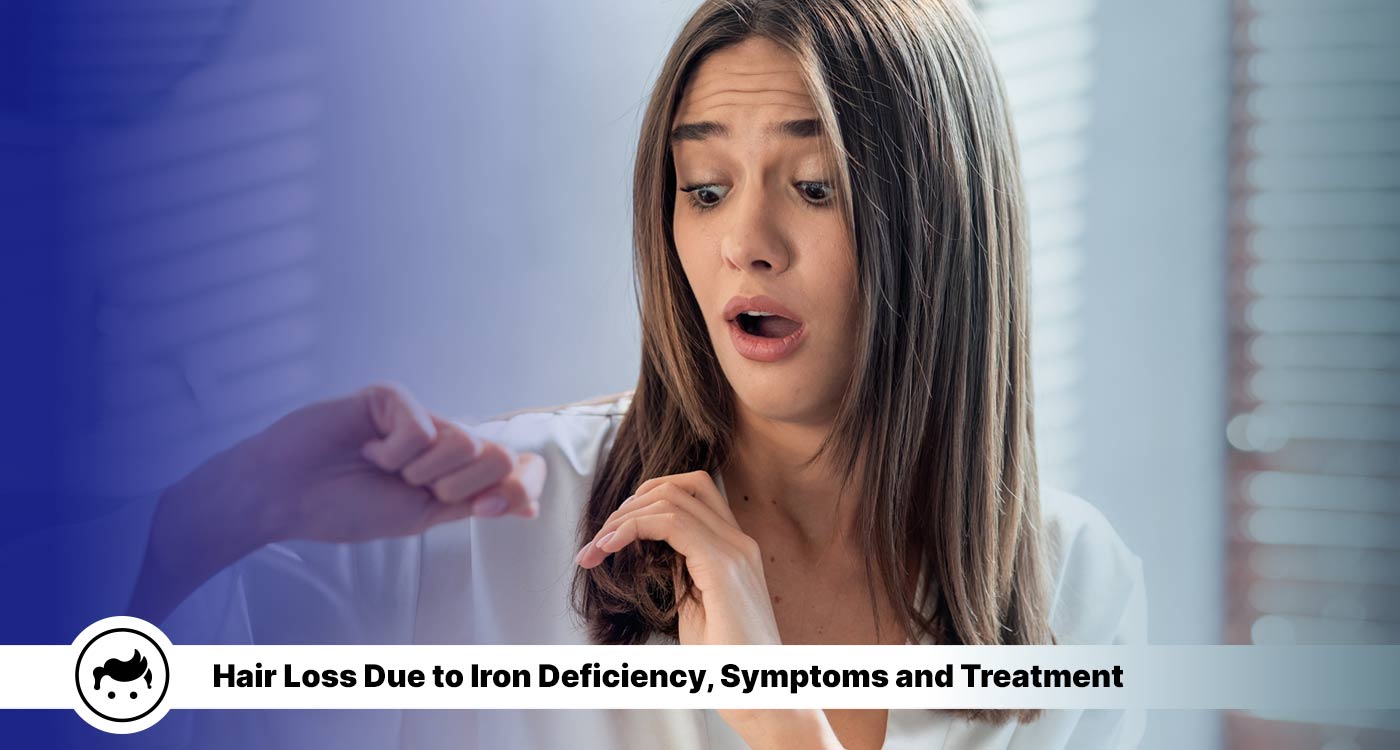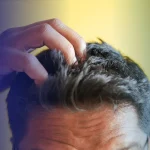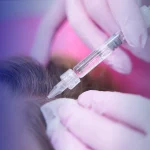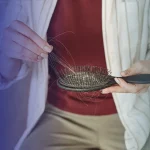
Table Of Content
Iron is essential for producing hemoglobin, which helps red blood cells deliver oxygen to our body. Iron deficiency anemia is a problem that occurs when the body does not have enough iron or the body cannot use iron properly. While severe iron deficiency anemia can cause symptoms such as shortness of breath, fatigue and chest pain, some people also experience hair loss.
Iron deficiency, which is the most common type of anemia in the world, is an important health problem that occurs in 35% of women and 20% of men. In pregnant women, this rate rises to 50%. It is very important to recognize the signs of iron deficiency that affect the whole body. If there is any doubt about iron deficiency, iron stores in the body should be checked.
Although not everyone who experiences hair loss has low iron stores, iron is a key component in an enzyme called ribonucleotide reductase that aids cell growth. According to some studies, hair follicle cells are very sensitive to decreased iron levels. In addition, due to low iron stores, new cell formation in the scalp does not occur adequately.
Among the causes of hair loss, especially in women, anemia due to iron deficiency is very common, as well as hormonal irregularities. According to studies, hair loss increases in people with iron deficiency, and when iron stores begin to fill, hair formation increases with the acceleration of new cell production. Many people wonder, “Can anemia cause hair loss?” and the answer is yes, as iron deficiency can lead to thinning hair. However, hair loss can be seen for different reasons in people who do not have iron deficiency. When diagnosing iron deficiency anemia, it is very important to look at 45 different values at the same time and to evaluate the situation.
The diagnosis of iron deficiency in people who apply to a doctor with the complaint of hair loss is mostly made by only looking at the hemoglobin (Hgb) value in the blood. At the same time, serum iron value is not sufficient for the diagnosis of iron deficiency. In order to make a clear diagnosis of hair loss due to iron deficiency, hemoglobin, serum iron, total iron binding capacity, non-binding iron capacity and ferritin ratios should all be checked in blood values.
There are 3 different types of iron deficiency, and each of them plays an important role in hair loss due to iron deficiency. Feritin value, which shows the amount of iron storage in the blood, is very important, especially in the case of hair loss due to iron deficiency. According to this;
Feritin level may decrease in women due to heavy menstrual bleeding, iron deficiency anemia, vegan and vegetarian diet, digestive system problems such as ulcers and absorption problems in the intestines. The normal ferritin level is considered to be 12-300ng/ml in men and 12-150ng/ml in women. However, a person with a serum ferritin level below 70 ng/ml means that iron stores have begun to decrease. As a result, hair loss can be seen.
Hair loss due to iron deficiency anemia is mostly female pattern hair loss, also known as androgenetic alopecia. In addition, seminal deficiency anemia is more common in women. Female pattern hair loss usually begins with thinning of the hair in the midline of the hair.
Iron deficiency occurs due to the increased need for iron in the body. The biggest cause of iron deficiency is staying away from foods containing sufficient iron source, pregnancy and heavy menstrual bleeding.
In addition to these, we can list the causes of iron deficiency as follows;
Although the symptoms of iron deficiency vary from person to person, it causes fatigue in all people without exception. However, since fatigue is one of the symptoms of many different vitamin and mineral deficiencies, it can be very difficult to detect iron deficiency through fatigue.
At the same time, iron deficiency is well hidden in the initial stage. The human body somehow covers up the iron deficiency and prevents the symptoms from appearing. However, there are symptoms that can be seen even in the initial stage of iron deficiency. These ;
After iron deficiency passes the initial stage, anemia due to iron deficiency begins to appear. In this case, different symptoms occur;
Those who have a few of the symptoms of iron deficiency should have their blood iron level and iron stores checked, and start treatment with a specialist doctor.
If hair loss due to iron deficiency is experienced, first of all, a treatment plan should be drawn up under the control of a specialist doctor, taking into account the correct interpretation of iron values, the age of the person, his diseases, and other missing minerals in his body. Experiencing low iron hair loss can be distressing, but increasing your iron intake through diet or supplements may help restore hair health. The priority should be the natural intake of iron into the body. This is the regulation of nutrition according to iron sources.
The best foods against iron deficiency are red meat, liver, eggs, kidney, molasses, dried fruits, green leafy vegetables. However, the best source of iron is the liver. While there is 12 mg of iron in approximately 150 grams of liver, this amount of iron is found in half a kilo of meat and 8 eggs. Caffeinated foods such as milk and tea can affect iron absorption. Other foods that are good for iron deficiency can be listed as follows;
Foods that are not good for iron deficiency and reduce iron absorption should not be consumed with iron-containing foods and in large amounts by people with iron deficiency, especially anemia. Foods that reduce iron absorption are as follows;
If iron deficiency cannot be compensated with food, iron supplementation can be used under the control of a doctor. Controlled use of iron supplements is important because excess iron is not excreted from the body, and it can damage organs such as the pancreas, liver, heart, and eyes.
The priority in hair loss due to iron deficiency is to replace the iron that the body needs. Anemia hair loss is often reversible with proper treatment, such as iron supplementation and addressing the underlying causes of the deficiency. Additional treatments that nourish the hair follicles can be started from the bee. Minoxidil-containing drugs can also be used against hair loss due to iron deficiency, and methods such as PRP and mesotherapy can be applied. If hair loss reaches advanced levels and hair loss increases, Turkey hair transplantation operations may be considered. It is very important to choose a good clinic for hair transplantation operations and that their prices are budget-friendly. Turkey hair transplant cost are more affordable compared to many countries. The fact that Turkey hair transplant costs are affordable does not reduce the quality of hair transplantation services. On the contrary, Turkey is an internationally prominent country for hair transplantation, with budget-friendly prices, qualified doctors and clinics with state-of-the-art equipment.




